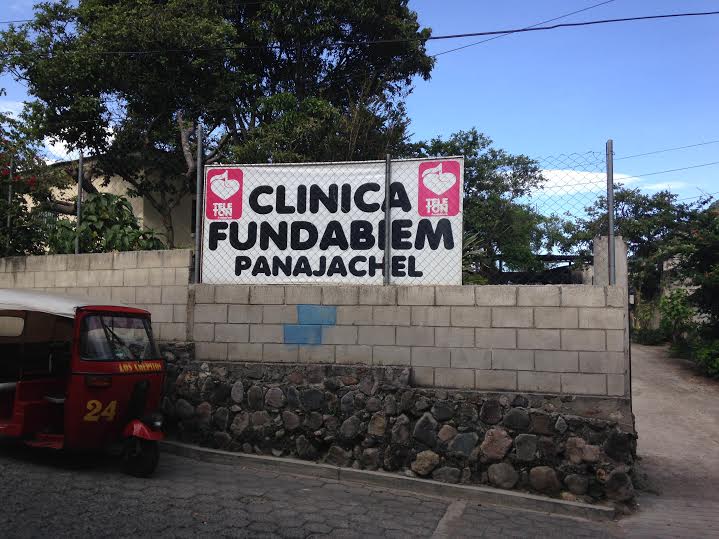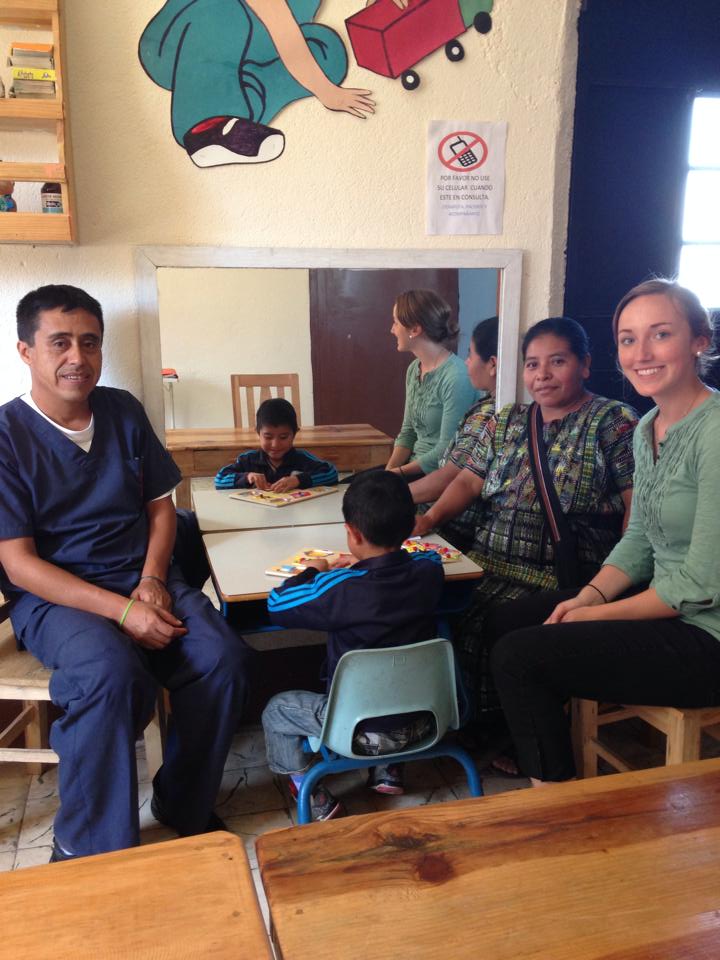This summer, I am in Guatemala with a Social Work program from North Carolina State University. As part of our program requirements, each of us participates in an internship working with the population of our choice. I have been interested in learning more about the special needs population. Therefore, with the help of my professor, I have chosen to intern with an organization named Fundabiem in Panajachel, Guatemala. My professor has previously spent a significant amount of time in Guatemala researching social work-oriented organizations around the area and has established good connections with several professionals. She has matched us with those which would provide the most experience.
Fundabiem is a unique organization because it works in partnership with Teleton, a non-governmental organization started to provide services for all special needs patients regardless of their economic means. There are about 25 Fundabiem locations in all of Guatemala. Each year, beginning in 1986 volunteers of Teleton have organized multiple fundraisers to supply the costs of therapy. At the location in Panajachel where I work, it offers occupational, physical, and speech therapy to approximately 150 patients. The clinic is not very large, but the employees utilize every inch of the building. There are seven employees at the clinic: a social worker, receptionist, bus driver, doctor, occupational, physical, and speech therapist. It is the only clinic for special needs therapy in the area and many people come from all over, as far as 1 hour and a half away, to receive therapy. It may not seem like a considerably long time for Americans with cars, but the majority of the people in Guatemala are indigenous and must use the public transportation system (aka “Chicken buses”, which are simply older school buses painted over).
My internship has exceeded my expectations because I have not only been fortunate enough to gain professional growth working with a speech therapist on a daily basis, but have had the privilege of listening to the stories of local, indigenous Guatemalans. Part of social work is learning to attend to the needs of others, which often times requires simply listening to what they have to say. One caretaker was the grandmother of a severely developmentally-delayed child named Norman. I inquired about the child’s mother and their relationship now, but the grandmother said that they did not speak anymore because together, she and her daughter would always fight. She told me that her daughter had made poor choices with a man from the streets and that she did not approve of that  kind of behavior, especially after she had more children since Norman. She wanted her granddaughter to grow up with better instruction and care and knew that her daughter would not be able to provide that at the time. It was difficult to hear this story and comprehend it in another language, but it shows the strength of Guatemalan families in times of need. The grandmother is the sole care-taker of the family and now has even more responsibility with Norman.
kind of behavior, especially after she had more children since Norman. She wanted her granddaughter to grow up with better instruction and care and knew that her daughter would not be able to provide that at the time. It was difficult to hear this story and comprehend it in another language, but it shows the strength of Guatemalan families in times of need. The grandmother is the sole care-taker of the family and now has even more responsibility with Norman.
Daily, I see children with a variety of diagnostics ranging from paralysis to hearing loss and down syndrome. Some children only have trouble with pronouncing words in Spanish. Before I came to intern at Fundabiem, I had no prior knowledge of what kind of work speech therapy incorporated. Since it is a clinic for the special needs population, there is a much wider range of goals to achieve with each child. To help children without strong facial muscles move their lips and mouth better, we use blowing techniques such as bubbles through a straw or with soap and also blowing feathers. Marvin, the speech therapist, will spend time massaging their mouths to stimulate mobility. To encourage movement of the tongue, we use tongue depressors with honey or suckers to have the children practice using their tongues more. Next, we typically learn or review more vocabulary and practice recalling familiar nouns or verbs. To do this, we have many activities ranging from flashcards to puzzles and drawing pictures. We continue with more speech therapy activities until the 30-minute appointment has passed. It did not seem like much time to me at first because Marvin usually has two or sometimes three patients in the room at a time. There is usually not much individual attention given to each patient. However, he does a great job dividing his time among the patients and asking me to perform many activities and therapy with them as well.
Since working in a speech therapy office, I have thought more about assisting others with rehabilitation in the future. It is an important job and very rewarding to see even the smallest progress. Personally, I have been fortunate to work with a very compassionate, concerned, and joyous therapist while here who has impacted me greatly due to his passion for helping others. He attended college in Guatemala City and received his degree, but he still remains poorly paid because of the corruption of the government and the lack of finances here. Regardless, Marvin performs his job with great vigilance and passion. I still have two years left of my undergraduate career and I would like to investigate more about the educational requirements of speech therapy in the United States and how many positions are available currently. I do know that I would like to remain in contact with this agency because it has strong values and functions to achieve its grand vision of uniting the people together by assisting one another. In the future, I would like to network more with NGOs located in the United States in order to provide more outside connections with Fundabiem and Teleton.



